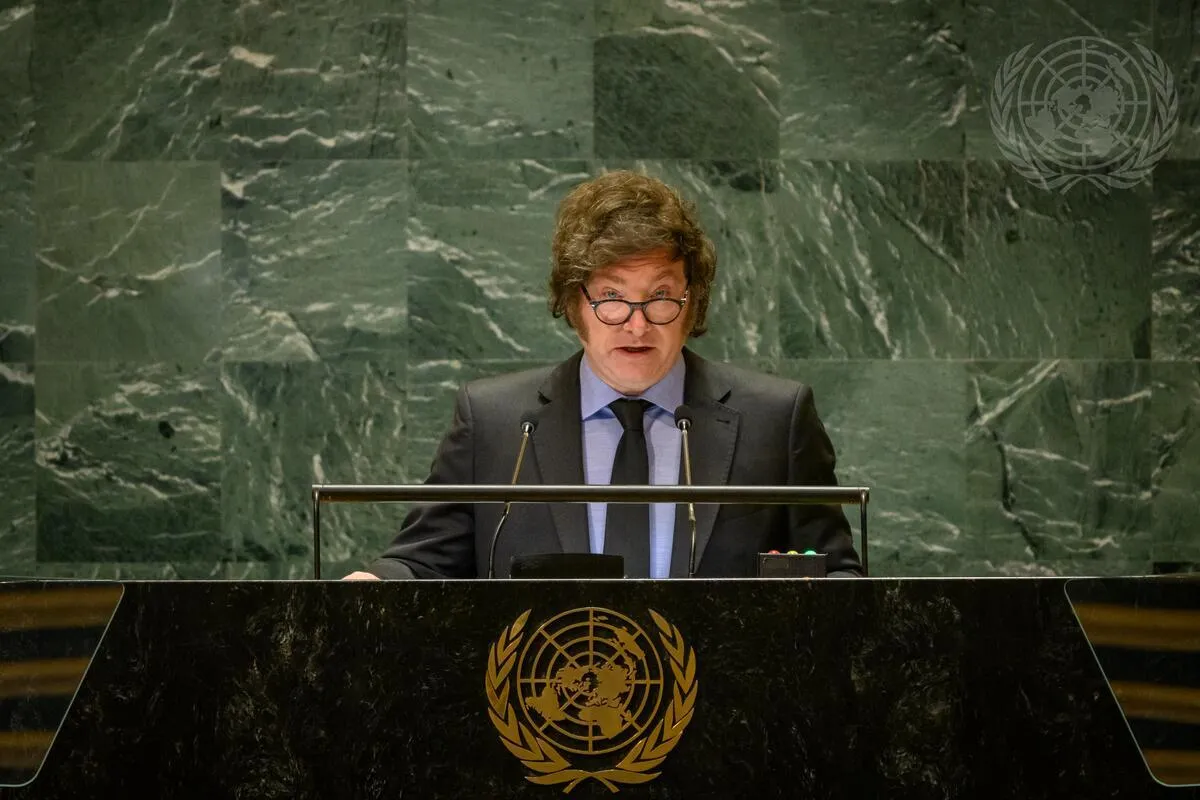In a Dec. 29 interview with Forbes Argentina’s fascist President Javier Milei vowed he would carry out more savage Malthusian austerity in 2025—he calls it his “chainsaw”—than he did in 2024. How many corpses will that produce? “we’re going to continue removing regulations. We’re going to advance with our agenda of privatizations and deepen labor reform,” he said. That is, do away with labor rights. “The chainsaw was the first phase. We made a first big [budget] reduction and now comes deeper things which isn’t just deregulating and getting rid of these [regulatory] obstacles but implies a bigger reform of the State which means making it even smaller.” Milei said that in 2024, he implemented a quarter of intended reforms, but there are 3,200 remaining.
And once the labor reform is completed, he added, a pension reform will follow—having gutted pensions such that a third of all retirees, a half a million people, became newly poor in 2024. In October of this year, a minimum pension was 21% less in real terms than in September 2023, and 14.4% less if compared to the same month of 2023. Programs that provide free medication to seniors have been terminated. Nota bene: These Thatcherite reforms are the ones so admired by Elon Musk, as well as by London’s The Economist, Financial Times, Britain’s The Spectator and others of this ilk, and which Milei claims will be adopted by the Trump administration as soon as Donald Trump is inaugurated Jan. 20.
Respected economist Alfredo Zaiat, who writes for the daily Página 12, wrote a devastating refutation Dec. 8 of Milei’s “scandalous” year-end claims that he had performed an economic miracle in Argentina—that he had tamed inflation, which, in reality, has increased month by month, contrary to official statistics. Contrary to Milei’s insistence that consumption has increased, Zaiat charges it has suffered “a historic and consecutive collapse, worse than the worst moments of the pandemic.” There is no reduction of poverty, indigence or unemployment. The official poverty rate as of the first half of 2024 was 52.9%—24.8 million people—compared to 40.1% for the first half of 2023. Indigence increased from 9.3% for the same time frame of 2023, to 18.1% in 2024.
A study by the University of Buenos Aires, reported Dec. 15 by Ambito Financiero, included detailed reports of poverty affecting workers, among the formally employed (on the books), underemployed or in the “informal” or unregistered sector. Although there is a notable gap in poverty levels between the formally employed and those in the informal and underemployed sectors, the study notes that the gap is shrinking— because poverty among those working on the books has increased significantly. Among the formally employed, the 17.4% poverty rate in 2016 increased to 37.9% in 2024. Add to this, the impact of the 120% currency devaluation of Dec. 13, 2023, three days after Milei took office.
Zaiat makes the important point. “To date, Milei’s economy is an immense financial bubble … 2024 will be recalled as the year of the most spectacular financial bicycle (the carry trade) in decades, with earnings of at least 50% in dollars…. With this result, who dares to praise the evolution of Milei’s economy? And how could it be evaluated positively?”





